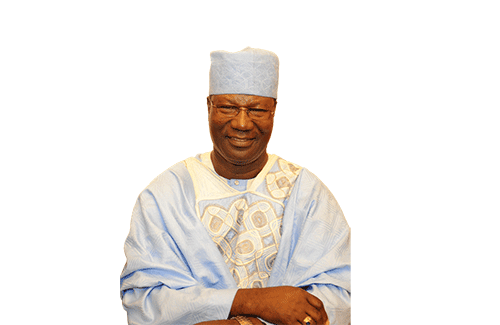Dr Moses Amweelo
Climate scientists have told the Guardian they expect catastrophic levels of global warming. Here’s what that would mean for the planet:
The world is on the verge of a climate abyss, the UN has warned, in response to a Guardian survey that found that hundreds of the world’s foremost climate experts expect global warming to soar past the international target of 1.5 degrees Celsius.
A series of leading climate figures have reacted to the findings, saying the deep despair voiced by the scientists must be a renewed wake-up call for urgent and radical action to stop burning fossil fuels, and save millions of lives and livelihoods.
Some said the 1.5-degrees Celsius target was hanging by a thread, but it was not yet inevitable that it would be passed if an extraordinary change in the pace of climate action could be achieved.
The severe drought in Zambia is threatening hunger for millions of people, cutting off electricity for long periods, and destroying the country’s social fabric and economy, the environment minister has warned, in a harbinger of what is in store for the region as the climate crisis worsens.
Collins Nzovu said the “crippling drought’’ his country was experiencing hammered home the message that developing countries were facing catastrophe from the climate crisis, even as richer countries failed to muster financial help for the most afflicted.
“What has happened this year is that we received well below the normal rainfall.
This has been a crippling drought,’’ he said. “We’ve had a huge crop failure. A lot of people who depend on maize and mahangu, who depend on agriculture for their very survival, face starvation and hunger.’’
The rains failed in February, when maize and omahangu, the country’s staple crop, reached the “tasseling’’ stage, when the grains started to fill. A lack of rainfall at that time means there is little prospect of saving most of the crop.’’
That period we had basically almost no rainfall at all, so that made things very, very bad,’’ Nzovu told the Guardian. People are reaching the end of their food stores, and importing from other counties in the region has become much harder as they too are feeling the impacts of the drought.
Food supplies have come from South Africa and Tanzania, but these are uncertain in the months to come. In early June, countries from around the world will meet in Bonn under the auspices of the UN for the first stage of months of negotiations on a new financial framework for tackling the climate crisis.
This will culminate in the UN summit, Cop29 in Azerbaijan in November, at which nations are supposed to set out a ‘’new collective quantified goal’’ for providing hundreds of billions of dollars in climate finance each year to the developing world.
However, the talks are mired in difficulty. Many countries are in the throes of election campaigns, including the US, the world’s biggest economy, and the EU, where politicians are concerned about a possible backlash against climate action.
There is no agreement over how climate finance should be provided, where it should come from, and who should receive it.
Nzovu said progress must be made on the issue as a matter of urgency. “If the whole world, especially the developed world, will not come to the table and provide cheaper financing and adequate financing, then we will be left behind,’’ he warned. He said the countries that benefited first from industrialisation owed a responsibility to the poorest.
“The climate has changed because the developed world has been buying so much fossil fuel for its development,’’ he said.
These are the fossil fuels that have been burned, which have caused climate change.’’ Hundreds of the world’s leading climate scientists expect global temperatures to rise to at least 2.5 degrees Celsius above preindustrial levels this century, blasting past internationally- agreed target, and causing catastrophic consequences for humanity and the planet.
Almost 80% of the respondents, all from the authoritative Intergovernmental Panel on Climate Change (IPCC), foresee at least 2.5 degrees Celsius of global warming, while almost half anticipate at least three degrees Celsius.
The impact of climate shocks in one place will cascade around the world through food price spikes, food and water shortages, broken supply chains, and refugees by the millions.
Only 6% thought the internationally-agreed 1.5-degrees Celsius limit would be met. Nzovu called for climate finance reform to help countries in Africa and other regions of the global south avoid the worst impacts of the climate crisis.
“Africa has contributed very little to climate change. Our CO2 emissions are almost negligible, and yet the consequences that Africa is suffering are very serious,’’ Nzovu stated.
A severe drought caused by record dry conditions has left an estimated 13 million people facing hunger in the Horn of Africa, according to the United Nations World Food Programme (WFP). Three consecutive failed rainy seasons in Ethiopia, Kenya, and Somalia – the region’s driest conditions since 1981 – have decimated food crops and caused high rates of livestock deaths.
The increase in staple food prices combined with the resulting water shortages and pastures are forcing families from their homes and sparking conflicts between communities. Families are struggling to buy and secure food as a result.
UNICEF in Eastern and Southern Africa has described the drought situation as “dire’’, saying “millions of lives are hanging in the balance’’.
*Dr Moses Amweelo is a former Minister of Works, Transport and Communication. He is currently a lecturer at IUM and UNAM on a part-time basis. He earned a doctorate in Technical Science, Industrial Engineering and Management from the International Transport Academy (St Petersburg, Russia).


